Presentations
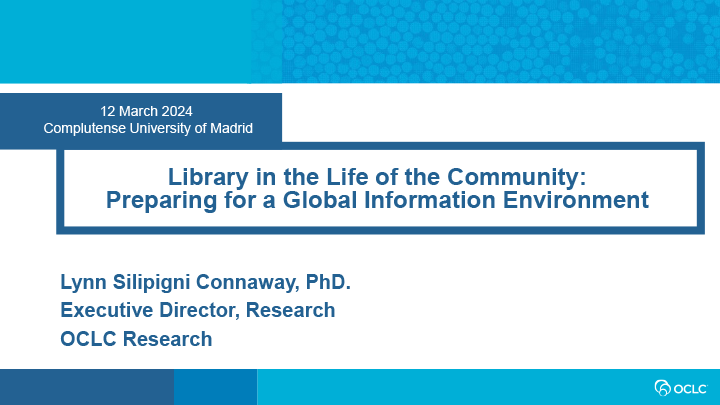
Library in the Life of the Community: Preparing for a Global Information Environment
Madrid, Spain
Lynn Silipigni Connaway, Ph.D., Executive Director, Research, OCLC, presented research that was conducted at OCLC addressing community-focused programming, spaces, and collections. She discussed the knowledge and skills required of information professionals in a global information environment.
Topics: User Research
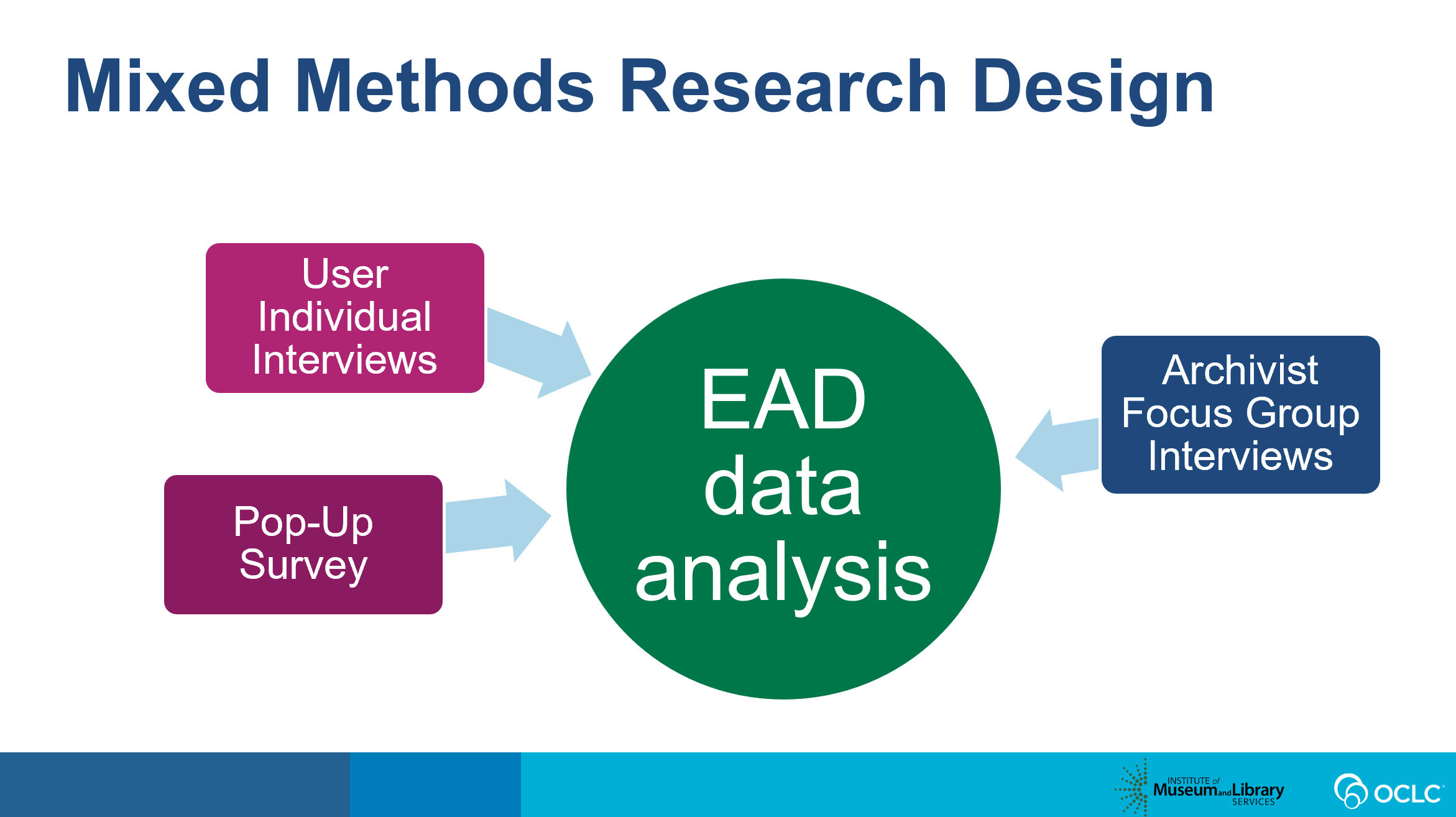
Works in Progress Webinar: Building a National Finding Aid Network (NAFAN) research findings—Archivist focus group interviews and EAD analysis
In this webinar, members of the OCLC Research team review findings from focus group interviews with archivists and review overall project recommendations.
Topics: Works in Progress, User Research, Archives and Special Collections
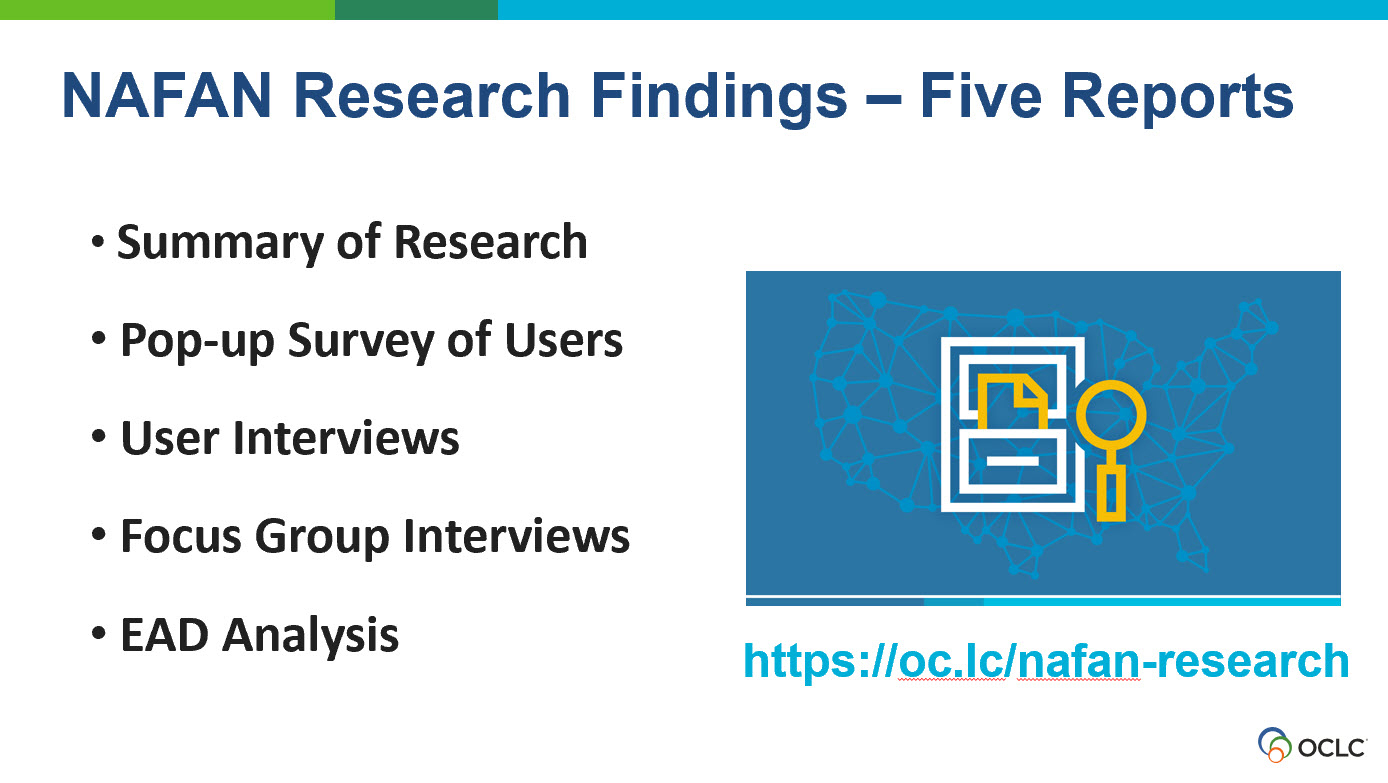
Works in Progress Webinar: Building a National Finding Aid Network (NAFAN) research findings—End user survey and interviews
Building a National Finding Aid Network (NAFAN) was an Institute of Museum and Library Services-funded research and demonstration project with the goal of providing inclusive, comprehensive, and persistent access to descriptions of archival collections, or "finding aids." Members of the OCLC Research NAFAN project shared our findings related to end users—those gleaned from survey data as well as from individual semi-structured interviews.
Topics: Works in Progress, User Research, Archives and Special Collections
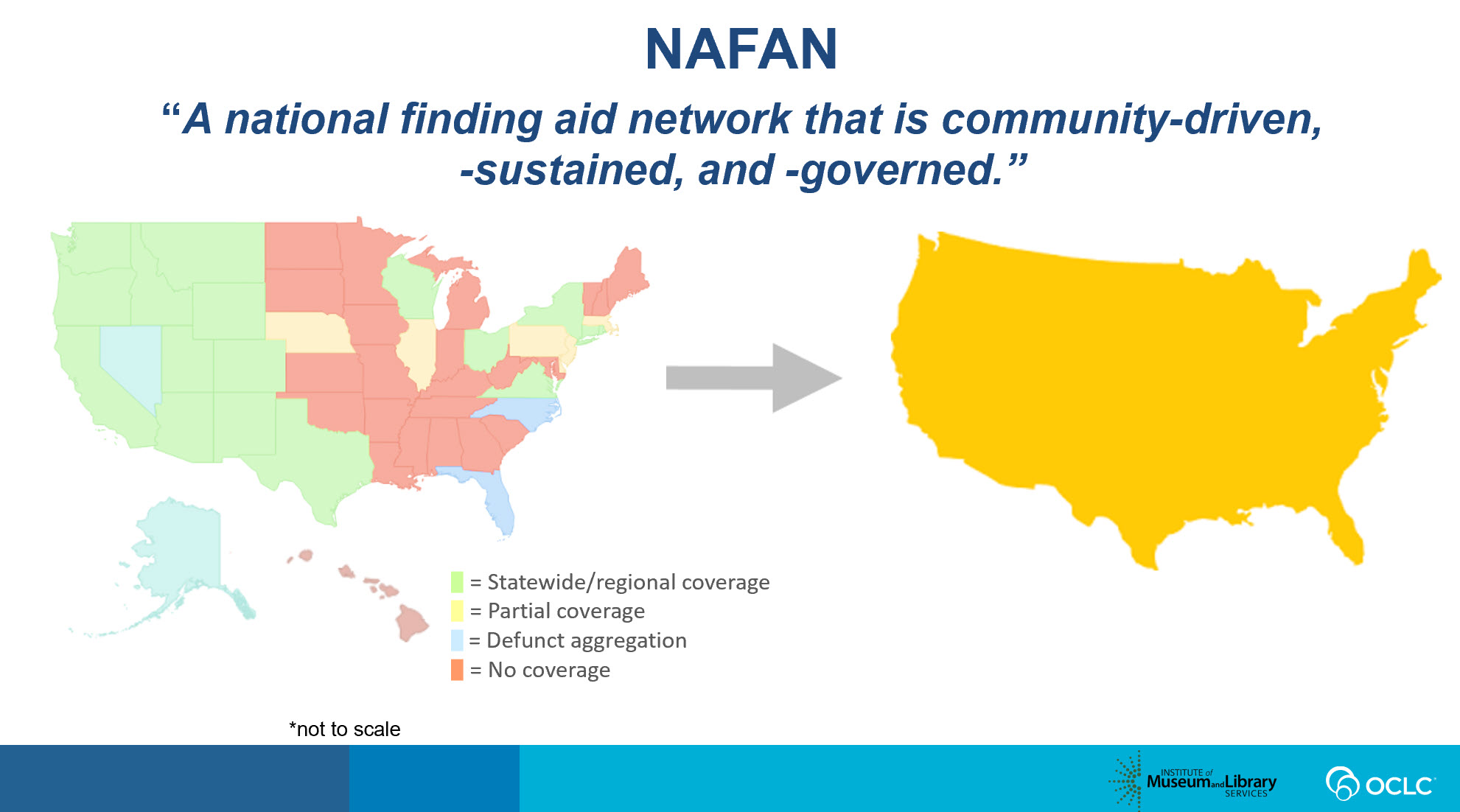
Works in Progress Webinar: Building a National Finding Aid Network (NAFAN) research findings—Introduction and project recommendations
Members of the OCLC Research NAFAN team introduced the goals and methodologies used across this important research project. This session covered the overall recommendations based on the findings of the OCLC Research effort for the NAFAN project.
Topics: Works in Progress, User Research, Archives and Special Collections
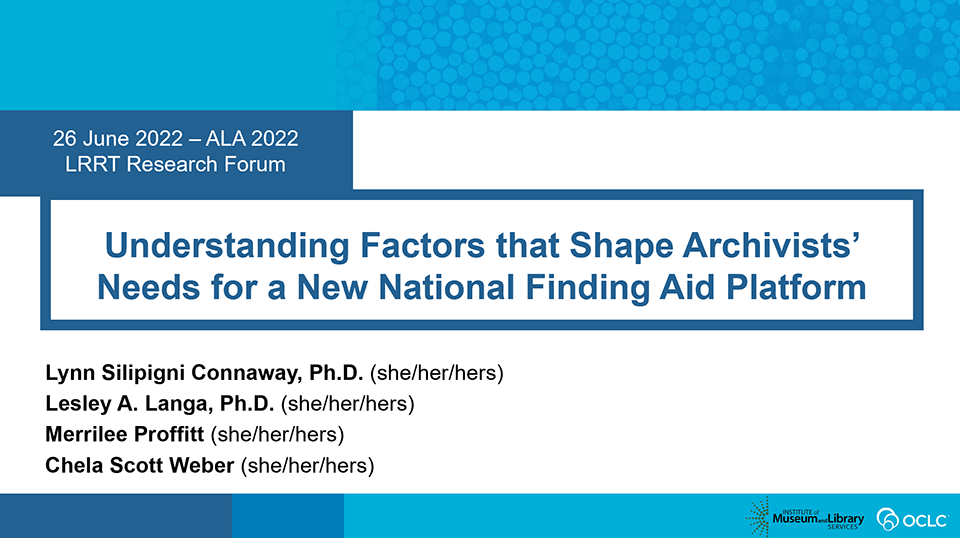
Understanding Factors that Shape Archivists’ Needs for a New National Finding Aid Platform
Washington, DC
The authors identify and discuss the opportunities and challenges archivists experience when describing archival materials, sharing archival description on the web, and making decisions about whether or not to participate in current finding aid aggregations.
Topics: User Research, Archives and Special Collections
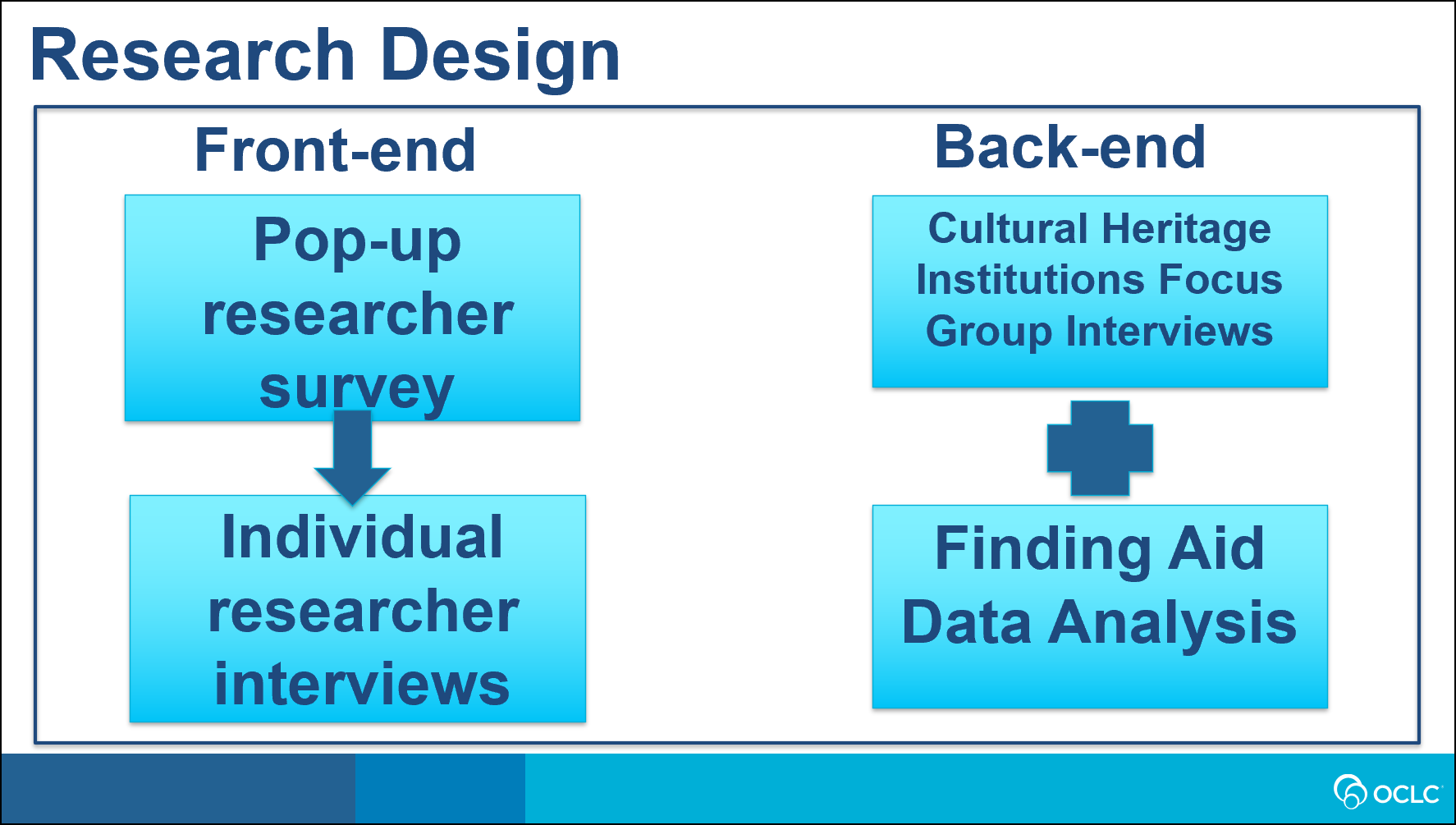
Works in Progress: Research to advance the Building a National Finding Aid Network (NAFAN) project
This webinar will be of interest to library and archive workers, and to those who manage or assess user needs for discovery systems for archival materials.
Topics: Works in Progress, User Research, Archives and Special Collections
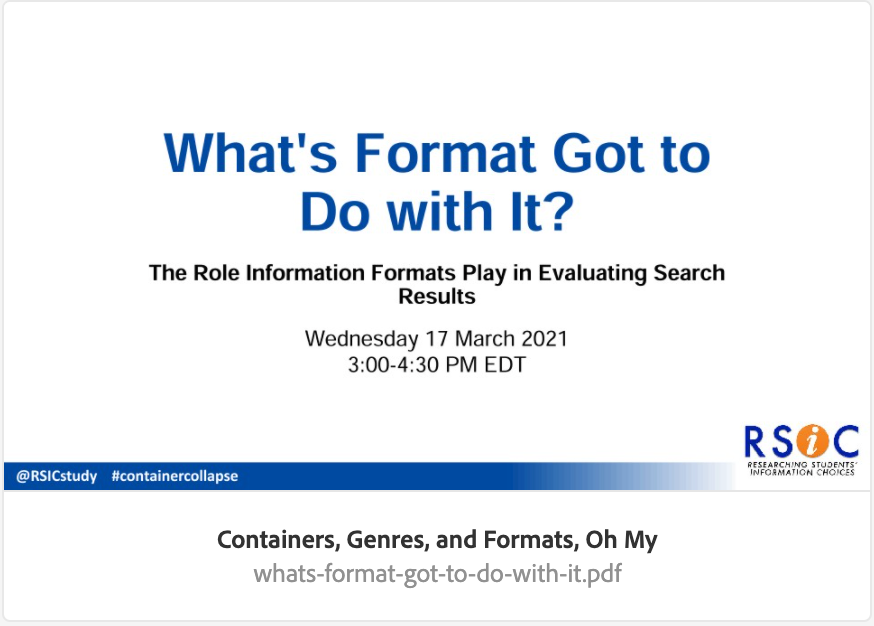
What's Format Got to Do with It? The Role Information Formats Play in Evaluating Search Results.
This webinar presents research on the role information formats play in student evaluation of search results and identifies practical applications for libraries of all types.
Topics: User Research, Student Support, Information Literacy
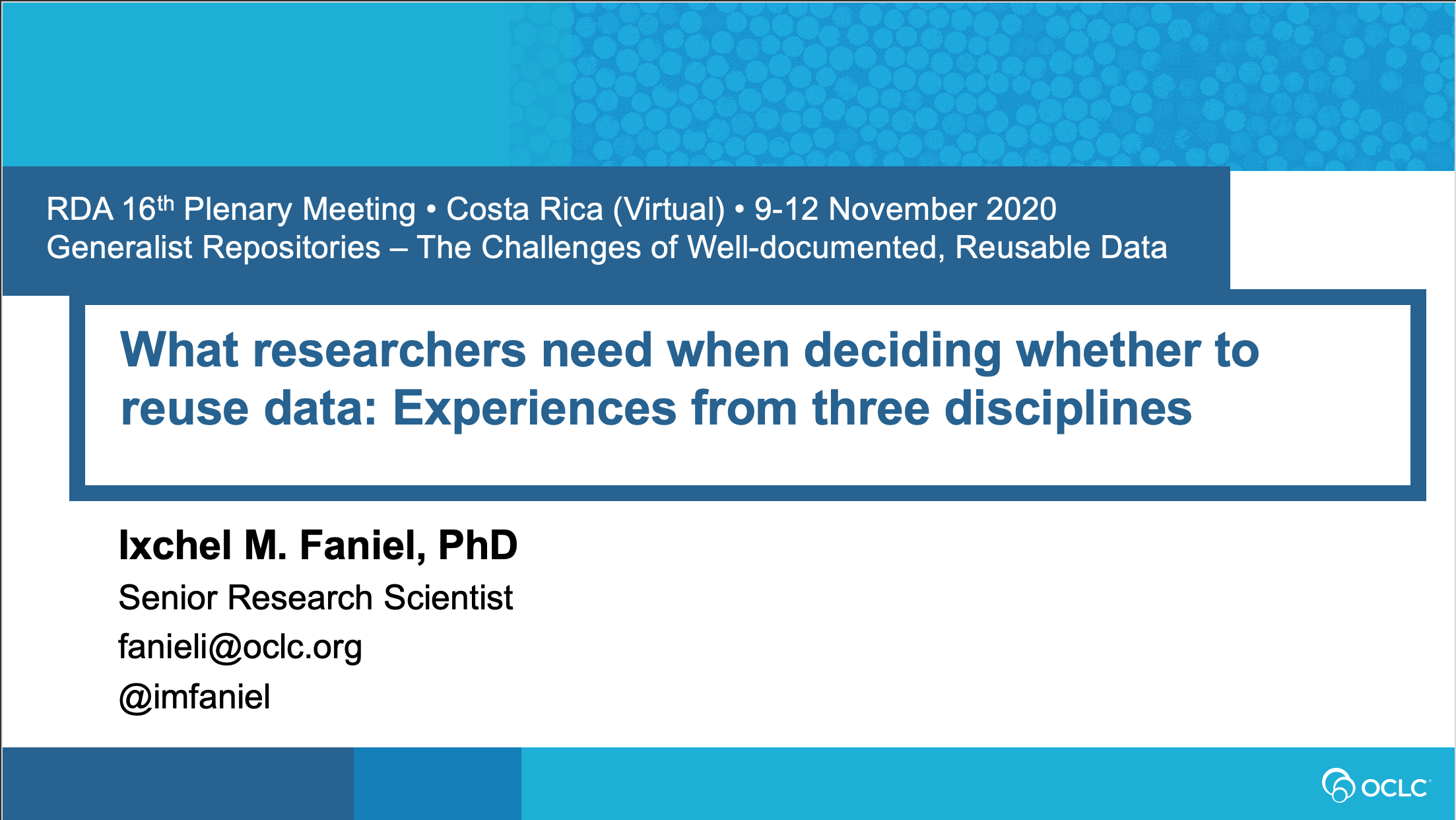
What researchers need when deciding whether to reuse data: Experiences from three disciplines
virtual
When researchers are deciding whether to reuse data, they need information about data’s context of production from a variety of sources such that data’s quality can be evaluated. This panel presentation compares the different types of context, sources, and data quality attributes quantitative social scientists, zoologists, and archaeologists mentioned needing during interviews and observations about their data reuse.
Topics: Research Data Management, User Research
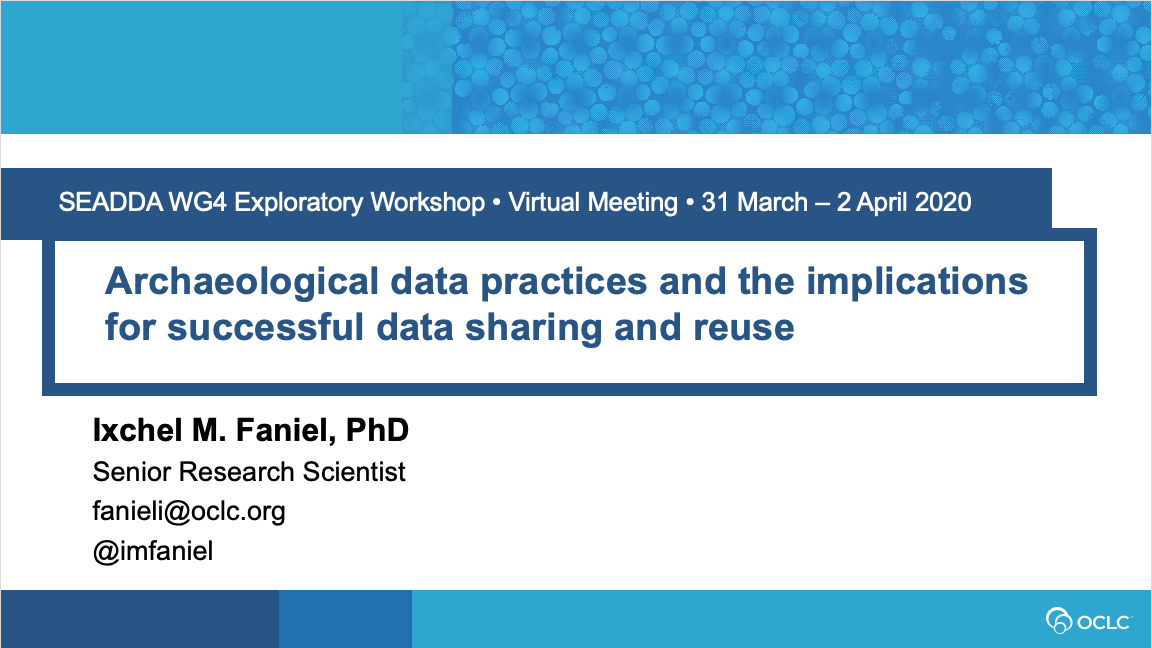
Archaeological data practices and the implications for successful data sharing and reuse
virtual
In this keynote presentation, Ixchel M. Faniel discusses findings from several studies examining archaeological data practices and needs and the implications for successful data sharing and reuse.
Keynote recording available from SEADDA.
Topics: User Research, Research Data Management, SLO-Data
![“It [my research] would take place at 11:50PM”: Constructing a Realistic Simulation to Study Online Information Evaluation for School Projects](/content/dam/research/presentations/2021/RSIC%20GICOIL%20Presentation%20-%20Final.pdf.thumb.1280.1280.png)
“It [my research] would take place at 11:50PM”: Constructing a Realistic Simulation to Study Online Information Evaluation for School Projects
When students explore a search results page for a school-related project, what leads them to select a resource? Learning how and why students select and evaluate resources for research projects in real time can be challenging. In this session, the authords discussed how they developed and deployed simulated search engine results pages to overcome methodological challenges and capture rich data on how students 4th grade through graduate school evaluate online resources.
Topics: User Research, Research Methods